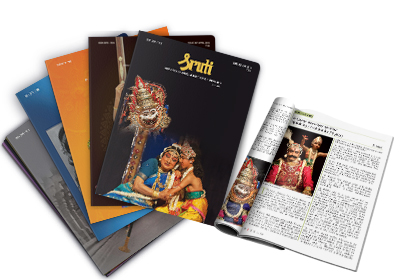Kalki Krishnamurti

Patriot, writer and art critic
Kalki Krishnamurti
Kalki Krishnamurti
The name of Kalki Krishnamurti occupies an eminent place in the annals of Tamil literature and journalism. A trendsetter in racy Tamil prose, his vast literary output included all categories of literature, except drama. He also raised the status of Tamil journalism. He was a connoisseur of performing arts. His critiques of music and dance recitals
appeared in Ananda Vikatan, and later in Kalki, from 1931. His reports were unbiased and humorous and were eagerly anticipated by music lovers.
Stamp on Krishnamurti
A commemorative postage stamp was issued on Krishnamurti on 9 September 1999 to mark his birth centenary. It is in the denomination of 3oo (Rs 3), perf. 13, and was printed on imported un-watermarked adhesive gravure coated stamp paper in photogravure process at India Security Press, Nashik. The line drawing of a book and a quill pen on the cancellation signifies the writer in him.
The stamp and First Day Cover designs depict the author against the background of visualisations from his works A Ponniyin Selvan (stamp) and Alai Osai (FDC); the latter won him the Sahitya Akdemi Award.
His biography
Ramaswamy Aiyar Krishnamurti was born on a numerically interesting day 9.9.99, that is, 9 September 1899, at Puthamangalam village in Tanjavur district. After primary education in his village he joined National College School, Tiruchi, but left it after three years, to join the freedom movement.
In 1922 he underwent his first imprisonment of twelve months in Tiruchi jail. There he met another young political prisoner, T. Sadasivam, who was to become his lifelong friend and associate. On release, he worked as a clerk in the Congress office, where he made acquaintance with C. Rajagopalachari (Rajaji), then general secretary of the Indian National Congress. Krishnamurti was to take him as his mentor and worship him as a hero throughout his life.
Krishnamurti moved to Madras, and in October 1923, joined Navasakti, a magazine devoted to nationalism, as its sub-editor. It was there he learned the alphabets of journalism, from the editor V. Kalyanasundara Mudaliar (Tiru Vi. Ka.), who was a scholar and essayist. Krishnamurti also wrote regular columns, adopting a style that approached the spoken form. In March 1924 he married Rukmini. After four years he left Navasakti as he found the salary insufficient to run the family.
Towards the end of 1931 he joined S.S. Vasan's Ananda Vikatan as its editor. Besides writing the editorials, he also contributed short stories and serials. In a matter of two years, Krishnamurti made Ananda Vikatan the largest circulated home magazine in Tamil. He wrote under the pen name of "Kalki", which became so popular that thenceforth he came to be known by that name.
Aadal Paadal
Kalki started writing reviews of music and dance recitals as also discs in his column Aadal Paadal under the pseudonym "Karnatakam". His writings were laced with humour. (A collection of his articles in Aadal Paadal was brought out in a book Kalki Kalanjiyam by Vanathi Publications.)
The Tamil Isai movement
One strong thread that ran through his writings on music was his intense love for Tamil Isai. In the beginning of 1941, Raja Sir Annamalai Chettiar, R.K. Shanmugam Chetty and a few other persons of standing, launched the Tamil Isai Movement a campaign for the inclusion of more Tamil songs in music concerts held in Tamil Nadu. Along with T.K. Chidambaranatha Mudaliar (TKC) Kalki took an active part in leading it. He wielded his powerful pen to create public opinion in its favour. The book Sangeeta Yogam, another Vanathi publication, contains Kalki's articles on Tamil Isai.
Kalki magazine
In 1941 Kalki resigned from Ananda Vikatan to join the "individual satyagraha" movement. He was arrested and imprisoned for three months. In August that year, Krishnamurti launched a fortnightly with financial aid and managerial support from his friend T. Sadasivam. As Kalki was already known by his pseudonym, he gave that name to the new magazine. Kalki was an instant success; in 1944 it was made a weekly. In a comparatively short time the magazine's circulation increased manifold. Kalki continued writing reviews of performing arts in the eponymous magazine. It is said that he used as many as 13 pennames for his articles on different subjects.
Through his column, Kalki led a crusade against drinking, untouchability, superstitions,A oppression of women, and other decadent practices in brahmin families of those days. He also reviewed plays and films. His film reviews were a class by themselves.
The thirteen years that he spent in Kalki saw Krishnamurti at his creative best. His prodigious literary output included more than a hundred short stories, nearly twenty novels and novelettes, besides hundreds of articles on a variety of subjects, and innumerable reviews of music concerts, dance recitals, dramas and films. Most of his short stories, serial novels and historical romances turned out to be masterpieces.
Public activities
Kalki took an active part in many public activities; we may note some of the more important ones. In 1935, he organised the celebration of the 80th birthday of Mahamahopadhyaya U.Ve. Swaminatha Aiyar. The appellation "Tamizh Thatha" (Grand Old Man of Tamil), by which Aiyar later came to be known, was given by Kalki in an editorial in Ananda Vikatan on the eve of that event. Kalki also played a leading role in the first literary festival organised in honour of Kamban at his birthplace. Kalki was also responsible for erecting the Bharati Memorial mandapam for Subramania Bharati at his birthplace in Ettayapuram.
Songs by Kalki
All but one song sung by M.S. Subbulakshmi in Meera (1945) were written by Kalki. The music was set by S.V. Venkataraman.
A Kalki song which needs special mention is Desa sevai seyya vareer for the film Tyagabhoomi (1939) directed by K. Subrahmanyam, a pioneer of Indian cinema. The film was based on a novel by Kalki and serialised in Ananda Vikatan; the song with patriotic fervour was also written by Kalki. It was sung by D.K. Pattammal. The fame that the film and the song generated led to the film being banned by the British government.
Untimely demise
In October 1954, Kalki suffered a severe asthma attack and had to be hospitalised for two weeks. Next month he suffered a heart attack from which he did not fully recover. He passed away on 5 December 1954. He was only 55.
Announcing his demise, The Hindu observed: Krishnamurti, as a writer, was among the widest read in this part of the country. His novels bore the imprint of a vivid, romantic imagination which could plan a story on a vast scale, and a mastery of style which could keep the reader interested from the first page to the last.
All periodicals brought out special issues dedicated to Kalki. Ananda Vikatan too issued a memorial issue and, as a unique homage to its former editor, it continued to publish his select writings every week for one full year. Kalki was instrumental in chiselling a generation of successful humorous writers.
Kalki left this world six decades ago, but he lives on in the magazine which bears his name, and in his immortal creations like Sivakamiyin Sapatham, Parthiban Kanavu, Ponniyin Selvan, Alai Osai and Kalvanin Kadali.
S. SANKARANARAYANAN
(Music philatelist and old time associate of Sruti)


